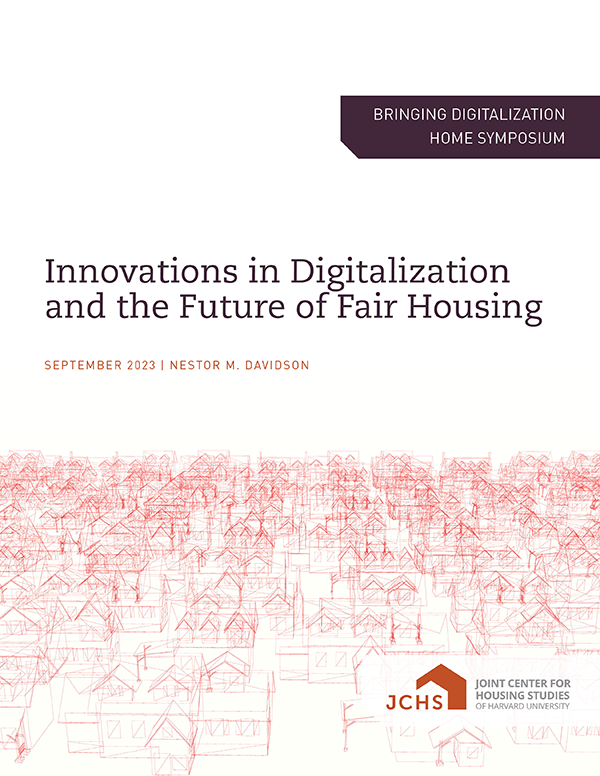Innovations in Digitalization and the Future of Fair Housing
In housing and mortgage markets, the increasing ubiquity of digitalization – emerging technologies that include AI, machine learning, and other types of informational automation – raises significant concerns about algorithmic bias, privacy, and the potential that centering data in public and private decision-making exacerbates power disparities. These are important concerns, but at the same time, innovations in digitalization hold promise for advancing civil rights in housing, supporting efforts to detect and remedy bias, as well as potentially offering creative new ways to direct federal, state, and local policies for housing justice. Novel data and analytics can empower advocates to detect and challenge patterns of disparate impact and policy choices that might perpetuate segregation, as well as advance nascent efforts to make real the more than six-decade-old promise that the federal government affirmatively further fair housing.
This paper was presented as part of “Panel 5: How Is Digitalization Changing How Housing Is Planned, Reviewed, and Regulated?” at the symposium Bringing Digitalization Home: How Can Technology Address Housing Challenges?, hosted by the Harvard Joint Center for Housing Studies in March 2022.

